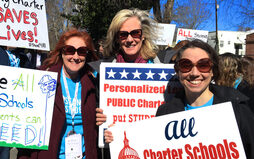 In May 2019, a story about a $50 million scheme involving several charter schools hit the news in California, erupting many people into frantically seeking to regulate charter schools. This scandal was the perfect event that anti-school choice proponents needed in order to reopen the debate on public schooling versus school choice, pushing the governor to sign legislation restricting charter schools through Assembly Bills 1505 and 1507. The backbone of these bills is that they restrict charter school openings if the programs offered are too similar to already existing public school programs, require teachers to adhere to the same credential standards as public school teachers, and move the authoritative body of approving charter schools to local school boards rather than the State Board of Education. While giving local governments more authority on schools is a good step for education, AB 1505 and 1507 are yet another afront to school choice and quality education due to their limitation of competition between public and charter schools and the increased burdens placed on charter schoolteachers. AB 1505 and 1507 limit the competition between charter schools and public schools, thereby stunting the natural rise in educational standards that would occur to attract students. Like anything else in the market, when two of the same products are offered, the customer will try to select the best option. If a student has to choose between studying one subject at a public school and the same subject at a charter school, both schools will naturally compete for the student. Since the rise in charter schools in the nation, public schools across the nation have advanced their curriculum to win over students. According to Education Next’s article by Marc Holley, a research fellow at the Department of Education Reform at the University of Arkansas and an evaluation unit director at the Walton Family Foundation, public schools improved their educational programs in order to attract more students: “we are starting to see a broadening of responses [to charter schools] perhaps fueled by...knowledge that charters are providing examples of ways to raise academic achievement.” In other words, public schools change the ways they attract students to make their schools academically competitive with charter schools. Some schools that have looked to charters as examples of ways in which to improve are a string of public schools in Denver. These schools, according to Education Week, “aim to recreate within its own buildings the innovation seen in top charter schools” by paying close attention to several things, including “excellence in leadership and instruction,” “increased instructional time,” “high expectations,” and “daily tutoring in critical growth years.” Thus, through competing with charter schools for students, public schools raise their own educational standards and offer a richer academic experience to the student. Removing competition between charter and public schools because both might offer the same program maintains public school education monopoly over students and does not give public schools the push to raise their academic standards. Without school choice, presidents of public high schools, like Public School 125 in New York, wouldn’t be saying that they have to advertise their school to get more students: “We have to think about selling ourselves all the time, and it takes a concerted effort that none of us have ever done before.” This novel “concerted effort” is good and shows the student his value in his choice of education. AB 1505 and 1507 additionally limit school choice by placing unnecessary requirements on charter schools--teacher credentials. Although some assume that a teacher’s credential ensures quality teachers, successful charter schools prove this wrong. The headmaster at my school makes sure that we understand that “Teachers haven’t taught until students have learned.” Numbers at numerous charter schools across the nation demonstrate that students learn, and learn at high rates, with uncredentialed teachers. For example, at the Great Hearts Academies, where I currently teach, students report high achievements in the classroom, including an average SAT score of 1267, 199 points above the national average; average 27 ACT score, 6 points above the national average; that 97% of students immediately attend college upon graduating, and 80% of students receive merit-based scholarships. These scores demonstrate that a teacher credential is inessential to qualify a good teacher as uncredentialed teachers achieve success without it. Thus AB 1505 and 1507, adding more regulation to the establishment or maintenance of a charter school in California, attack school choice. Not only does eliminating competition between charter schools and public schools undercut quality education, but adding extra unnecessary steps for good teachers and schools deliberately weigh down charters and weakens school choice. Let’s not let fear determine our actions. Instead, let us always use competition to push us towards excellence for our students. As Marc Holley explains, “Competition motivates districts to respond to the loss of students and the revenues students bring, producing a rising tide that, as the common metaphor suggests, lifts all boats.”
0 Comments
This past week, I had the honor of speaking to Mr. Martin Masat. Born just six months before the Prague Spring invasion, Mr. Masat grew up during the 'normalization' period in Czechoslovakia. Communist indoctrination was a normal thing for him, and he didn't really notice a lack of freedom until he was a young adult. When he was a student at the University of Economics in Prague, he experienced the fall of communism first hand. He more than experienced it, he aided in its destruction. Presenting about the student's strike to outside villages, Mr. Masat tried to spread the truth to the people around him. And that's what we want to do today--spread the truth about communism. In the words of Mr. Masat, "the basic idea of communism is to help the poor people. It's difficult to understand that maybe the basic idea might be nice but it will never ever work in practice, and what will always happens is that some totalitarian state will evolve from it." Peak into the life of someone shaped by communism. The very life which was molded by communist teachers and pionyr scout leaders, then beaten by the law behind closed doors, without a trial.
The following conversation has been edited for clarity. Part I: Childhood to Young Adulthood D: Welcome back to Life during Communism: a Conversation Series. Today I have with me Mr. Martin Masat. He was born in January 1968, putting him at 6 months old during the Prague Spring invasion. He studied at the University of Economics in Prague. He currently works as a transaction advisor for the KP and G international company. He currently lives in Czech Republic with his family. Thank you for being with us today. To start off, I’d like to ask you about your childhood, youth, and your experience with school. What were some of the communist influences in school? Did you enjoy school? M: Hi Jessica, hi everybody. I would say when you were a child at that time, when I was, meaning the 70s, you wouldn’t really think that something is not normal, or that something strange is going on. You would just live your childhood, have your normal problems. School, I don’t know. Now I think that I enjoyed school, but then I probably wouldn’t say that I like school. When you speak to children, not many say they like it--it’s kind of a duty. There’s nothing for me that would be not normal. One of the influences, obviously, there was a youth organization for the children which was called Pionyr. It was kind of obligatory, a very small percentage of children didn’t attend. Normally, about 90-95% of children in schools were members in this organization. It really depended on the teachers and people involved. At summer schools I heard stories that people had to spend an hour a week, with boring stuff, sitting in the class and hearing about the greatness of the Soviet Union. Another classroom would have a couple of meetings, a couple of trips. It wasn’t as seriously taken. That’s something you would notice-another duty on top of school-but again nothing markable. My parents didn’t really want to mess me with politics or anything, so they didn’t talk with me or in front of me about politics. Obviously they didn’t want me to say something wrong in school, or want me to lie in school. Some of the teachers were communists and were promoting it. But most of the teachers were silent. They did their jobs and taught the students. It wasn’t something you would notice as “oh, I’m locked, I’m not free.” Most children didn’t notice it. The second thing you noticed were Czech flags. It was 30 years after WWII. All the people still had memories about it. When we started drawing pictures, we always drew soviet or Russian tanks freeing us from the Nazis. It was always something which influenced the children, the young people. On TV there were movies about brave Russian soldiers. There was a famous polish series about four brave russian soldiers and a dog. So it was kind of made for children. Kind of difficult to compare. You guys have superman, we have russian soldiers fighting Nazis. In the second part, the years when I attended 5,6, and 7th grade you started noticing some things. You spoke to people who knew about Prague Spring, or found some old magazines. So obviously you started thinking about these things. However, it was not black and white. The idea of communism is very different from fascism. The basic idea is to help the poor people. It’s very hard to change your opinion because the basic idea is something that everyone can believe in. D: You talked a little bit about the Prague Spring invasion. Did you learn about it in school or did anyone mention it? M: No. The Russian army freed us in 1945, and from then on we had been friends. D: In class, did you ever talk to any of your classmates about communism, or did you know not to ring up? M: Well, you could meet occasionally some people with a strong mind, one way or the other. But most people didn’t speak about it. At the elementary school, we didn’t even learn the 20th century. Even Masaryk and the first republic. Obviously we were taught about the second war but it wasn’t really a part of the history or studies, it was a part of everything. Regarding communists, I can tell you our class teacher was a very strong communist teacher and she was really believing in communism. Trying to persuade us that everything is good. And, to be fair, she was a good teacher in terms of her being professional and her effort to teach us something. When I spoke to the guys, you know how in every class you have bad boys who always have troubles. I was not one of them. But when I spoke retrospectively to one of them they said she was very tough but she fair. If there was one of those good guys, who are very proactive, and made some problems, she was hard on them as well. So you could say she was tough, she was communist, but she was a good teacher. Maybe even a good person. Difficult to see from the point of a child. When you speak to people later, you realize that in the 70s, there weren’t many communist believers. The people simply realized that something was wrong. People in the 50s and 60s believed in it, but after 1968, 90% of those people realized that there was something wrong. At the same time it’s an example that the Communist Party ruled the country. They had a system of head hunting relatively good people. If you were good in your profession, you had a chance that people would come up to you, say that you’re good, you’d classify to be a communist, and offer you a position in their business. You can join us and become a high director, or you don’t have to. And that happened to me at the university. In my first semester, I was nervous and made a big effort, and was one of the top two in my class. And one of the teachers (and 90% of the teachers in the University were communists, not at the elementary school, but the teachers at the university had to be) came to us and offered us a position in the Communist Party. And we both told him no. And there were no consequences. I can imagine if it were some other person it would maybe be an issue. But many of them were reasonable and didn’t do anything. D: I’m glad you started talking about the University because I have a few questions about those. Did you have to take any special exams and tests to enter the University, and did any of those have any special communist influences? M: At the University we had normal exams. We studied at the University of Economics so some of our questions were based on Marxist and Engels theories. Some of our exams were part of the economics incorporated in the socialist/communist theories. If you were asking to join the University, you had normal exams with Mathematics, maybe Russian--Russian was common, you had to learn Russian--and such, but nothing special really. Obviously you had to present your CV and you had to have some commentary from your school. So, if you were a child of some dissidents, so obviously the university would be told. And you wouldn’t get in, the University would make it so that you didn’t pass the exams. Regarding university, the socialist economics was funny. There was something called Political Economy of Capitalism which was the Marx/Engels and Political Economy of Socialism which was complete nonsense but you had to pass it. And there was something really strange, like the History of Communism, which you somehow passed. It was nonsense. There was no logic in it, no benefit in it, and the people who taught were ok. They were the old people who fought in the Slovak Revolution against Nazis, and they didn’t know how to teach, but they had good qualification from fighting. It was partly fun, partly nonsense, you had to suffer through it. If you did it, you did it. It wasn’t the biggest pain. What was more painful were the soldiers classes, which we had to attend in the second and third years. We had to spend one day a week practicing to be a soldier, and you had to pass an exam. If you didn’t pass the exam for these classes you couldn’t graduate the University. So it was a pain, it was a difficult time. Also, survival. D: Survival classes? M: I mean, yeah in those times it wasn’t very good times from the democracy or freedom perspective, but you could live. You weren’t afraid that you would be killed from your dissidents. D: Thank you so much for taking your time. M: Of course Part II: Young Adulthood D: Welcome back to the Life during Communism: A Conversation, I have with me Mr. Masat. Earlier we discussed his experience with communism when he was a child in elementary school. Fast forwarding to his early teen years and young adulthood, he looks at the situation much differently. M: Hello D: In the 80s, what did you think about communism? M: If you speak about official propaganda, it was very clear. It was part of daily life. Everyday you heard on the news that life is so great in our country, thanks to the Communist Party, thanks to our soviet union friends, where the Western Imperialists, like USA, France, UK, and other countries, are only trying to make war. So it was a very black and white diction of how the world is. Obviously in our country everyone had to have a job, it was a law that you had to work. On the other hand we were told that there was so much unemployment. There were very big differences between the rich and poor people in the Western world. So, that was the official propaganda in our country D: What were the sources of propaganda? M: TV and newspapers. Obviously it was not possible to get foreign or Western newspapers. It was illegal even to bring any into the country. Although you could listen to a couple of radio stations. Radio Free Europe and Voice of America. They broadcasted in the Czech language. The Communists were trying to, not really shut them down, but damage the signal. But it was kind of like, I even don’t know if it was illegal to listen to them. Obviously if you were caught, you would find difficulties in your job, in your work, but you wouldn’t be arrested. You weren’t supposed to listen to it, but it was possible. That was the source of information from the other side. The travelling was limited. We were basically free to travel to the Eastern part of Germany, so it was really difficult to get direct experience. On the one hand, you understood that the official propaganda was lying to you, but on the other hand, you didn’t really know the truth. So it was difficult to make your mind. There were a couple of phenomenons that you really noticed. Emigration. There were some famous sportsmen, tennis players, hockey players, singers. If life is so good here and not there, why are people leaving here, and not the other way around? That was one aspect of it. So, some information was limited and you had to make your mind with limited knowledge. The vast majority of the people understood that the freedom here is limited. D: How impactful would you say was Radio Free Europe and Voice of America. How impactful were their broadcasts in changing the opinion of the people from official propaganda to the truth? M: It was really important. Otherwise, you would have really only limited rumors. So it was important. Many people were listening to it. This was a source of information where I learned that there is some dissent. There is Mr. Havel. There are people being arrested not just for their thinking, for their mind. I would say it was important. Itself wasn’t necessary to change things, but it was important in keeping people's’ eyes open. D: Leading up to the Velvet Revolution, did you sense the fall of communism from the atmosphere of the people? M: The atmosphere in the late 80s was definitely changing. It was not changing too much. Just in little strides. In our country in the 80s, folk music and country music became popular. It’s slightly different than folk music in your sense. It’s not really the old music of the nation, it’s more like Bob Dylan, and these kinds of singers. There was a boom of this kind of music. Here there were big festivals. They were official festivals. In the first plan, or first idea, it was nothing controversial. But you could see that some of them started to be a little bit more brave. To start putting hidden messages in their songs. There were continuous pressure. You could see that it was evolving and it was more and more possible to be open about things. If it was too much, then some censura came in and the singer was prohibited to sing. On the other hand, you could see that some of the previously prohibited singers were suddenly allowed to sing. One of them, was prohibited many many years and then suddenly, in 1988, I went to one of his live shows, official, or semi-official. To be very frank, all of this was because of Mr. Gorbachev and his Perestroika. What was happening in the Soviet Union at that time and other countries was not really happening here. But, I went to Poland and Lietuva in 1989, and I was shocked by the life there. There was freedom. There were official newspapers describing things really shocking to us. I realized, there are big things happening around us, we must also receive change. Another thing which helped was the visit from the French president, Mr. Mitterrand. One of the promises the Communists made was that they allowed him one official dissident formation. For the first time in my life I saw with my own eyes Mr. Havel, yeah. From those, you could really predict that something was really happening. D: It must have been a really awesome thing to be a part of. An awesome feeling. M: Yeah, and then there were some unofficial protests which started in 1988 for the anniversary of Mr. Palach. So there were so called “Palach week.” So especially in 1988 and 1989 there were very big protests. I personally did not attend them, but they were really close to my house, so from my window I could see some of the people running and policemen chasing them. Then there were protests in the Northern part of the country where there were bad situations with the pollution. And there were protests with the factories. You could call them environmental protests. But obviously the Communists forces took them as protests against the Communist Party. They were protests where people were arrested. There were protests where there were policemen with water guns. So you could predict that at one point something will happen. D: During the Velvet Revolution, did you ever attend any of the protests? M: Yes, I attended the manifestation on the 15th of November. A couple of friends told me about it. It wasn’t officially promoted. But it was officially out. It was the anniversary of the Nazis killing a couple of students and closing the University during the occupation. But the thing was that it was co-organized by a couple of independent student organizations. There were some people who spoke who were very open with their criticism of the current situation, of zero freedom. So it turned out to be a very anti-communist protest. So it became something that students didn’t want to end, and we decided to march. And the police forces were following the march and stopped it at some point. And I was arrested and locked in the police house until midnight. D: Were you beaten by the policemen? M: Yes, not in the streets, but in the police station, yes. You know, I don’t like a big number of people together, so I was in the end. So they took me. D: You were an easy target. M: So to speak. So that was my experience. It was Friday. I didn’t know what was happening in the streets, but later I knew that there were lots of beaten students. Because it was in the city centre, close to some theatres, it was spread to the artists, actors. So the next day, the artists started a strike. The strike was like this: the shows were not canceled, but people came to see some theatre, and the actors would go on the stage and say we are not going to act, but we will talk about what’s happening in the streets. And then the students went on strike on Monday. It was very difficult to communicate. But some students ran from one University to another and spread the news. And, one thing was, there was spread fake news. And it’s still unclear how it was spread, but the fake news was that one of the students was killed. I personally think that for some people it was the catalyst or the point when they said they needed to do something. And that was the point where on the other side the Communists started to be afraid, to say they did too much. So the strike was where we went to the Director and said we will not go to school but we’re occupying it. At most schools this really happened. And you spent a couple of days and nights in the schools, locked sometimes. You could go out but you didn’t want to because you didn’t know what would happen. After the artists got more brave, some of the newspapers printed what happened on the 17th of November. They started to publish the requests of the students. One of them was to change the base law which stated at the time that the ruling party needs to be a Communist Party. To obviously that was difficult to swallow. So at that time you didn’t really know if the army would come and force us from the school. Or if they’d only accept five of the ten terms. There were a couple of days where we felt really nervous. We spent the time by taking trips to the country. We didn’t have internet. What happened was that there were lots of posters, we want to change the system, we want freedom, students are on strike. In the small towns outside of Prague it was more difficult to persuade the people that things were changing. So we did some trips, some road trips, to present there. D: That’s awesome, that’s really inspiring. It sounds like it was primarily a student-run protest. M: Like what I said it was just chance that it happened like that. The catalyst could have been the environmental protests. At that time, yeah. You can see it once in your night, yeah. I was walking around Prague at night, told the taxi driver that I was a student, and got a free ride. D: Wow, that’s a lot of respect. Do you remember celebrating the end of communism? Do you remember the point at which communism fell? M: We speak about the Velvet Revolution, which was the 17th of November, which you know at that time the Berlin Wall had already fallen. So we were one of the last countries before Romania. So I would say that the really deciding date it was the last day, the 29th of December, where Mr. Vaclav Havel was voted president. It was very clear. Now the world would really change. D: How soon did you see change? We talked about the Velvet Revolution being the 17th of November and Vaclav Havel becoming president in December. That’s a short amount of time, politically speaking. How soon did you see change in everyday life? Did you still have to wait in cues for food? M: Definitely no. The economical situation didn’t change from day to change. Definitely there was change in your mind and change with what you could say in public. But, for example, if you wanted to travel during communism, you had to submit an official application for travelling abroad, and an application for exchanging money. And you had to simply wait. The answer from the officer could be, sorry, we don’t have enough Hungarian money, you cannot go there. And that changed relatively immediately. Simply, they said we don’t have much foreign currency. So they split the package and gave out the calculated quota per person. So everyone didn’t really have a lot of money but everyone was in the same situation. So I immediately went to Greece in 1990 with just a couple of Euros in my pocket. But I was free to travel. D: Oh, interesting. Do you see any lasting effects of communism on people? Are some people still affected by communism, and wear an affected attitude? M: It’s difficult to say. I would say that in the 70s and 80s noone was really believing in the idea of communism anymore. In the 90s you suddenly could do your business on your own, be an entrepreneur, that was illegal before. So people who used to be less risky started to be more brave with their money. But, it’s a difficult question. There are many aspects, and it’s hard to say what was the cause of change. During communism, you had one or two or three choices. Now you have big supermarkets, with lots of choices. So people started to change, started to be numerous. There are many possible changes. D: Looking at the world right now, do you think a conversation about communism and Czechoslovakia have a role in society, and how big of a role does it have? M: Yeah, people tend to remember the good things and forget the bad, especially from their childhood. I think it’s definitely important to have this in mind. It’s obviously difficult to capture all of the aspects. It’s difficult to be fair and explain everything to people who didn’t live during communism. Now, where there’s lots of social media, what I call the Twitter period, where people are used to expressing themselves in one sentence, it’s very easy for propaganda. If you want to confuse people, it’s really easy to just post on Facebook “it was much better at this time.” without explanation. There’s room for lots of garbage on the social networks. D: I agree with you, people have become dull to doing their own research. If it’s so easy to just click on the phone, they won’t do more research. M: IN my country, I’m surprised by how many positive messages you can find about Russia and China, and you don’t know who’s writing them. There are still some kind of Cold War or, we have to fight for the democracy still. It’s not automatic. D: Right, freedom’s not free, you have to fight for it. I love it! To close the interview, do you have anything you’d to add? M: I might think about something later, I’m a little bit exhausted. Sorry for my English. I’m not a native English so sometimes I don’t express myself very well. It’s still a big topic, unfortunately. You can imagine that the basic idea of communism is to help the poor people. It’s a very basic idea, so it’s very difficult to understand what is wrong with it. And that’s something which we discussed at the University, but for some of the less educated people it was difficult to understand. It’s difficult to understand that maybe the basic idea might be nice but it will never ever work in practice, and what will always happen is that some totalitarian will evolve from it. Although you can point to some of the short, limited periods or areas where the communist idea, where everyone shares everything together, might come to practice, like some of the Jewish cities, or the city of Tamor in the Hussite land in old Bohemia in the beginning of the 15th century. Apart from the Jewish villages, the experience is always that the outcome of trying to introduce this into practice will be a disaster. D: Well thank you so much for talking with me. It’s been really interesting to hear about your experiences, and thank you so much for sharing with me and others about communism. M: Thank you for being interested. 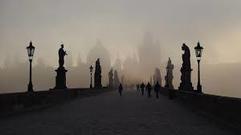 After I experienced the commemoration of Prague Spring, 1968 in the Czech Republic, my interest in the history of communism in this country peaked. One of my friends from class mentioned that she wanted to go to the Museum of Communism downtown, and I immediately asked to join. What I was about to learn would change my life. I had always known that communist governments were repressive. But, the extent to which they repressed their citizens was unknown to me. I had a fictional picture of communism in my mind: an Animal Farm-like reality in which nobody could trust anybody, wealth was extremely difficult to accumulate, and freedom was nonexistent. But, this fictional idea never was real to me. I imagined the real version of communism to be less harsh--that Czechoslovakia wasn’t repressed that much. I couldn’t have been further from the truth. Communism in Czechoslovakia was extreme. It robbed people of everything they had, including their consciences, personalities, and ability to trust. It made each person just a number in a system, forcing them to act as cogs in the machine rather than human beings. The following is what I learned at the museum: Although it wasn’t until after WWII when the Communist Party officially took control of the country, many citizens sympathized with communism in the early 1920’s. Leading up to the establishment of the Communist Party in the Czechoslovakian government in 1921, Czech lands suffered from droughts and poverty, and thus communism appeared to offer a solution to their problems. By 1928, the party had gained a substantial amount of followers, making it the second-largest party in the Communist International party. After WWII, the USSR dictated the government in Czechoslovakia. Socialist parties were abolished, and the Communist party gained control. Once in control, the Communist Party leaders initiated massive eradications of dissenters. At the start of Communist control in Czechoslovakia, 23,000 people were found guilty of crimes. Of the 23,000, 713 were sentenced to death immediately. In 1945, 75% of industry was in the government’s control, and in 1948, the government put to use the taking of others’ property, or “legalized theft.” Although Klement Gottwald was the president of Czechoslovakia, he had limited control himself. Most of the decisions were dictated to him from the USSR. Thus started what the Museum of Communism calls the “Communist Dictatorship.” From 1948-1968, Czechoslovakia was subject to extreme poverty, doctrination, and oppressive control. The Communists created a new ideal for their citizens: Homo Communism. The new socialist man was the laborer. He volunteered for his community, loved the army, and waved the soviet union flag. To showcase this ideal, the government created many banners and paintings glorifying Homo Communism, including the huge painting attached at the bottom of this article. Because labor was valued so much, and because the Communists in Czechoslovakia thought that the bulk of the community relied on physical labor, the government sponsored many uranium mines. Working in these plants was extremely unhealthy, and the stress of gathering uranium left huge environmental issues in the country, as well as economic. To compensate for the government’s overinvesting in industry, it decided to change the value of its currency overnight and lower its debts. Although a few days before doing so government leaders promised that the money value would not change, they changed the value regardless on June 1, 1953. Imagine going to bed with $50,000 dollars in your bank account, to wake up to only $1,000. The reform made paupers out of the citizens, while it decreased the debt of an extremely inefficient government system. Cash lost about 80% of its value. The West referred to this reform as the “great swindle,” which it surely was. 130 anti-communist strikes occurred as a result of the reform, to which the government acted violently to repress. Additionally to the Homo Communism ideal, and all of the problems it brought with it, communism hacked away at Czech culture. Baby Jesus, who traditionally brings presents on Christmas Eve, was replaced by Grandfather Frost. The Scout program--an important extracurricular program for many Czechs--was replaced with the Pionyr program. The Communists tried desperately to thwart religious practices. Many faithful Catholics could not hold jobs where they had the possibility of affecting the culture. Among many Catholics thus persecuted, Dr. Radomir Maly, a former historian for a museum in the town of Kromeriz, was forced to quit his job and work as a menial worker because he would have had too strong of a religious effect on those around him. Dr. Maly’s story of persecution is a common one for faithful Christians in Czechoslovakia; from 1948 to 1968, the number of priests in the country decreased in half. Many practicing Christians were forced to either stop practicing their religion, or turn to illegal, underground meetings. The persecution of Christians has a lasting effect in Czech Republic. In 1921, about 82% of Czechs identified as Roman Catholic, but by 2011 only 10% of Czechs identified as Roman Catholic. The Communist policies were bad. Taking away freedom anywhere is a violation of human rights. But the ways in which they were enforced are close to unimaginable. The StB was the Czechoslovakian secret police who monitored their neighbors all while remaining under cover of ordinary citizens. StB infiltrated all parts of life. In every avenue of work, members of the StB monitored their neighbors and coworkers. StB kept records of the people they watched. They listened in on phone conversations at switchboards, bugged rooms, and set up secret cameras. If these records hadn’t been burnt, they would have covered several soccer fields, piled a few meters high. In the 1950’s, 422 labor camps were created, in which lived 11,026 residents. Dissidents and non-dissidents alike of the ‘Communist Dictatorship’ were systematically placed in these camps. The Ministry of Justice predetermined how many people they wanted to imprison. Thus, many of the imprisoned had not been loud dissidents of communism, and some hadn’t even committed any crimes. The StB had two rules regarding the placement of people into the prison camps: 1. The people arrested were the only witnesses to their crimes, and 2. The StB could never free someone they arrested. Breaking any of these rules would undermine the StB authority. The StB had several ways of forcing confessions out of their imprisoned: they would torture the arrested by not allowing them to sleep well, waking them every 15 minutes from their cells, they would beat them up physically, inject drugs into their systems, and not let them live until they forced a confession. Travel was hardly an option for Czechoslovakians. Either they travelled to the West illegally (and never returned), or they travelled to the USSR on highly supervised trips. When Czechoslovakians visited the USSR, KGB was vigilant in never letting its visitors see the true face of communism. Escape from Czechoslovakia into Western countries was nearly impossible. Huge barriers and barbed wire fences were built along the borders, and sand plains led up to the barriers to highlight the dark bodies trying to escape against the white sand. Many were killed while trying to escape. Communism was indoctrinated in schools. Children were taught to tell on their parents if their parents ever talked poorly of communism. My grandmother, who grew up in communist Prague, said that she had to be very careful with what she told her children. She admits though, that her children were smart and knew not to say anything, and that most of the other children understood not to talk about communism, too. Additionally, children were taught that wealth was evil. If someone acquired wealth, they were against the common man. The subject of their education was likewise made up of propaganda. For example, children had to write essays on the benefits of their liberators, the Soviet Union. Undoubtedly, if they questioned the essay prompt, or the USSR, they were met with grave repercussions. Thus, Czechoslovakians lived very tough lives. Their commemoration of Prague Spring, 1968 weighs much more when seen with the knowledge of what Czechoslovakians were trying to escape. The goal of the commemorative movement--that the nightmares never go grey--was met with me. The commemoration made me interested in Czechoslovakian history, and made me question my previous knowledge. Now that I know this “Communist Dictatorship” started with the approval of the people, I will be much more skeptical about politicians in my own country, and vigilant that none try to take away my freedom. I hope that learning about communism in Czechoslovakia has the same effect on you, too. Stay tuned for the second part: Prague Spring 1968-Post Communism Read more here: -https://www.catholicworldreport.com/2017/05/19/catholics-in-communist-czechoslovakia-a-story-of-persecution-and-perseverance/ -http://news.bbc.co.uk/2/hi/europe/country_profiles/1844842.stm 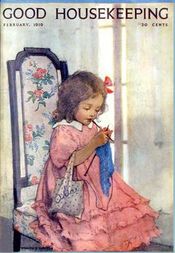 This Thanksgiving, I visited one of my good friends near my school. While on my visit, I saw a cute little magazine cover framed on one of their bookshelves. On the cover, a little girl in a play dress sat knitting what looked to be a scarf. After studying it for a while, realizing how happy the girl seemed, I noticed that it was the cover of an old Good Housekeeping magazine. Now, this cover would not have been printed. People would have claimed that Good Housekeeping supports a limited view of women and their roles as mothers. Good Housekeeping, according to them, would suggest that a good mother is one who teaches her daughter how to be a good mother in the future, or a good mother according to the standards of that day. Her daughter would learn how to knit, sew, wear dresses, and do other chores. Any mother who fails to do this, fails in being a good mother. The way our society would react to this cover if it were published today shows a drastic change in our definition of motherhood. To fail to recognize that knitting and sewing are perfectly fine activities for a woman, if she so chooses, is one of the ways we can see this drastic change. Good mothers put their children first. They show them interesting things, and teach them how to behave well. This cover shows that a good mother teaches her children things, including knitting. It demonstrates that good mothers, in teaching their children these things, show them that they can create things and find happiness in their abilities to create. It doesn’t limit women to specific household chores. It merely shows that women, as people, can and should create things. I remember learning how to knit from my mother. I was excited to be able to make scarves and other neat things just through using two needles and yarn. This sparked my interest in other areas of crafting. But I wasn’t the only one in my family knitting. My brothers did as well. We loved creating things for my family members. We made scarves for practically everyone in the family for Christmas. After learning how to knit, my siblings and I learned how to sew. We created neat couch pillows, with embroidered designs. Whenever we finished a project, we gave it to someone we loved, happy that we could simply create something and give it as a gift. My mother, as all good mothers, showed us how to create things and find joy through our abilities. She helped keep us creative when we could have been bored watching some unintelligent TV shows, or stuck with an iPad, just following instructions and not really thinking. Through showing us how to knit, sew, and do other crafts, my mother sacrificed her time. Instead of having us sit in front of the TV to let her do the things she wanted to do, she would talk to us and teach us things. She devoted her time to our development and thus our confidence. Now, many of the Good Housekeeping covers are centered on the mother herself instead of children. The juxtaposition of just the covers of this magazine demonstrates our culture’s drastic change. When motherhood used to be focused on children, it is now focused on the mother and her ability to host other adult guests. It shows that as a culture we are much more focused on ourselves and our pleasures instead of sacrificing for others. And, it shows that we are much less concerned on children and their development in general. We seem to just let other things teach our children, such as educational TV shows or iPads, so that we can have more time ourselves. This is a loss. Why couldn’t this old magazine cover be a cover today? Would teaching your child how to knit today restrict them from seeking things other than knitting in the future? Does it teach little girls that her place is only in the house? Of course not. It engages children and helps them feel accomplished from creating something. As opposed to just placing children in front of the TV, or handing them iPads to do activities which require them to do things, instead of the more engaging activity of creation, mothers teach their children important skills. 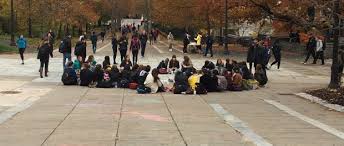 After the election, students at Cornell University organized a “cry in.” Much like the community students have sought through “safe spaces,” these students want to feel that they are not alone in their misery. They gathered to mourn the recent election of Donald Trump and console each other in their coming fear of a man who, they claim, is a bigot, sexist, misogynist, homophobe, xenophobe, and racist, among doubtless more personal attacks. Professors at other Universities have condoned similar behavior, cancelling tests throughout the week to accommodate the emotional “shock” of their students. People have fled to Facebook to voice their pain, writing that they will be “allies” to women, blacks, members of the LGBTQ community, and so forth. They claim that those who voted for Trump reflect the descriptors they have used for Trump–attacking their morals and character. These people make it seem as though everybody who voted for Trump did so out of hate; because they believe in a kind of white supremacy that demands that they bully people who are different. But that is the way they have seen this whole election. The media has presented Trump as this figure of hate, while the media presented Clinton as the beacon of love. Clinton would be able to support these minority groups and repress the bullying from the privileged. But a vote for Trump would condone it. Why have people become so weak to the point that they feel the need to publicly cry for the outcome of an election? And why has that become acceptable in this nation? Why have there been an increasing amount of “safe spaces” on campuses? It seems like the people who have cried, who have voiced their opinions against Trump and for Hillary, and who have felt the need for safe spaces on campuses do exactly what they claim they oppose. They use the system to accommodate their feelings and insult the people who don’t agree with them. They limit these conversations, which could be made about rational things such as policies and actual facts, down to merely emotional responses. And claim that anyone who disagrees with them is a bully and a horrible person. But, is it really the students’ fault? Many of the universities now have professors who support a progressive, liberal agenda. They reflect the arguments the media has used to demonstrate the weaknesses of those running. But because the media has relied so heavily on the emotional response of the voter, they have focused too much on name calling and mudslinging. So much so that those who claim are rational beings, the university student, is left with little or no means of expressing himself well. They rely on sudden bursts of rage on Facebook, or public displays of sadness through cry-ins, or signs of giving up through “safe spaces” because they think that those who disagree with them will hurt them in person. What happened to the idea of civil discourse? Has this tool, the very one that lets us express ourselves as people through communication and our use of reason, become just something of antiquity? Can we still fight back the animalistic urge to express ourselves in tears instead of reason? I think so. As Edmund Burke puts it, “To read without reflecting is like eating without digesting.” Let us read, then. And reflect. So that we may differentiate fact from opinion–truth from falsehood.  Challenging ourselves is good. Through challenges, we learn important things, such as what we are best at and how we can do things better. We may grow from challenges, thus widening our areas of expertise and becoming more comfortable in pushing ourselves. Through a good challenge, we focus on bettering specific things so that in the future these things may come a bit easier to us. However, sometimes it can be easy to lose sight of the big picture and place our focus on the difficulties of the challenges themselves instead of focusing on our improvements. Through giving ourselves an unrealistic amount of challenges, we may sometimes spread ourselves out too thin and hurt our abilities to succeed. Through challenging ourselves, we force ourselves to evolve. With less time, resources, or better expectations, we now have to find ways to do better than we had before. In forcing ourselves to do more, we naturally gain more experience. In time, this experience will result in knowledge. Whenever I feel uncomfortable doing something new, I try to remind myself that it is sometimes good to be uncomfortable. While doing something I’m not quite good at, but that is good and beneficial for me, I may at first feel uncomfortable. When I went to College, I was at first uncomfortable with living away from home. I didn’t know anyone, didn’t have a car, and wasn’t that great at school. But day by day, I felt more comfortable because I made friends, found ways to get places, and became a better thinker. All of these things are good things that only resulted from me pushing myself out of my house and into something uncomfortable. However, sometimes we get caught up in the challenges we have, and focus just on how difficult they may be, instead of how we will get better from accepting them. We may get lost in our challenges, and forget what we actually had wanted to achieve through them. Through giving ourselves too many challenges, we may start to only do the bare minimum, resulting in understanding only the surface level of deeper things. Recently, I had to limit the amount of times I worked my on campus job at the office. Basketball season had started to pick up, and midterms had hit me hard. I was disillusioned with my standings in some of my classes, and realized that I had to readjust my schedule to give me more time for my studies. Although it was hard to decrease my hours at the office, I realized that it was the best thing for me to do because I had been spreading myself out too thin. I had lost sight of the big picture. Seeing some of my grades really notified me that I was not where I wanted to be in my studies and that I wasn’t focused enough on learning. Instead, I was too distracted by the other uses of my time to put enough time in my studies. Through recognizing our challenges and understanding their goals, we may be able to grow in great ways. However, if we challenge ourselves in too many ways, we may never actually put enough energy into things and get great results. We should, instead, focus on fewer things at one time and get good at them so that we can pile on more challenges later. By becoming experts in our initial challenges, we may use the skills we learned from these and apply them in the future. 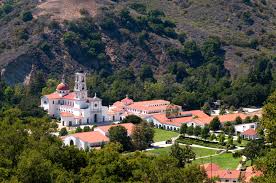 A student’s College choice is usually one of the most stressful and significant first choices of his early adulthood. And while it is important to have fun in College, that can’t be the only deciding factor in the selection process. College has to be so much more than just fun. It is responsible for taking students who are just starting to be full adults and teaching them the best way to do that. College, which comes from the Latin word collegium–meaning community, society, guild–is meant to be experienced through a partnership. Through this partnership, the student is fully guided into being. The three most important things a student should judge a college on are the College’s ability to live up to a sound mission statement, the education, and the community. In the mission statement, Colleges list what they intent on educating their students. If the mission statement matches your principles, then it will most likely be a comfortable fit for you. Getting an education will help you extent that mission statement to other areas of life by giving you the tools you need to teach through word and example the reasons you had for agreeing with those founding principles. And living in a community of positive, semi like-minded individuals will help you share your truth finding experience with others. A College’s mission statement needs to express concern in defending every true and beautiful thing. It is in the nature of a College to form young adults into responsible and intellectual people. Through helping students understand the ways of life in their four years of learning, Colleges perform their duty in forming human beings. Colleges have a duty in teaching students of the things that matter–the things which transcend youth, social class, and money. The things which make us really human and intrinsically valuable. Therefore, when a College’s mission statement expresses a distinct goal in teaching its students how the world works, it fully becomes a College in acting with the nature of a college. A College must have a challenging and well-ordered education. During my senior year of high school, I started taking basketball seriously. My confidence soared and I started receiving offers from schools. After receiving a scholarship offer to a school, I verbally accepted out of excitement. However, later in the school year, I realized that the school would not challenge me academically. I was already a decent AP student, graduating with honors, and I did not want to waste four years of my life by only being challenged physically, not mentally. I therefore decided that I needed to go to a school that would challenge me to be the best I could be at every moment. And only through pushing myself every day, I hoped I would get a little better each time. After recognizing this clear change in my expectations for College choice, I searched for a school which had a sound Mission statement and sure ways to achieve that. At the end of my search, I decided on going to a school where I had only the average or below average test scores. But that had an incredible faculty and community which I knew would help me in my growth. Finally, just like College’s Latin derivative, College needs to be done together. Through community, students are able to motivate each other to be their best. Even though class and homework are important in helping students remember facts and major themes, have a strong community is a necessity in leading students to really understand things. Through discussion, students may express their ideas from their classes and explain through their own theories. In helping others understand concepts, students inevitably expand their own grasp of the subject. And through creating a positive learning environment, students help each other form the right attitudes towards their studies and learning. A College is what students should attend and graduate as better people. They should be able to use the experiences they had in College to help explain and defend their own opinions, spreading sound ideas to the rest of the world. Many times, when students just choose a College based off of its party culture, they miss something important, something transcendent. They think that College is limited to just the four years they stay at a certain place, but don’t recognize that a College should be much more than that. Through attending a College that makes students question life to get a better understanding of life, students will inevitably carry their wisdom and new ways of approaching life with them. Last week, I discussed the line people need to walk with social media. I suggested that people need to be able to recognize when social media are appropriate to use, and when using them becomes an obsession. Now, I would like to continue this discussion and give more reasons to my claims. Social media become an issue when people prioritize social media over real life situations, giving media an unordered amount of attention. The dangers which result from an obsession with social media are not worth the temporal pleasures people experience through them.
The world is ordered. Once order is lost, chaos reigns. This is obvious through almost everything in daily life. When people pay attention to things that do not really matter, they may find it difficult to finally face the important things because their minds were not well prepared. Similarly, Love is ordered. When we love something out of its order, we glorify that thing, and can easily become used to treating that thing that way. For example, when we honor a good above an obviously greater good, we lose sight of the proper value of things and unjustly give attention to things. In Augustine's Confessions, Augustine discusses the hierarchy of goods. He states that all things are good in their proper place. So, food and drink are good. They both nourish our bodies and make us feel good. We get a certain amount of satisfaction when we eat and drink. Having friends is good too. We also receive satisfaction from relationships with others. But we do so in a much more meaningful way through learning, sacrifice, and charity. However, Augustine states that when we place our love for food and drink above our love of friendship, we inordinately love food and drink. We become obsessed with that good and undervalue what rightfully is a better good. Ordering our lives well also includes ordering the love for the goods in our lives. Social media, albeit a good in this world, are things which can easily be mistreated. Once people start replacing the love they have for social media above the love for actual conversations, they undervalue real relationships and obsess over something too much. You may say, however, that social media is a way to enrich your relationship with someone else. And while this is true to a certain extent, depending on social media for all of the development of a relationship is dangerous. Social media, due to the fact that people who use it so often, can easily be a place where people falsely feel close to their "friends" or "followers." Through pictures and posts, you may feel like you are close to someone. But because there are no actual interactions, the only thing you learn about the other is facts. You miss every other good thing in a relationship with that other person. You feel as though you are right there with them, but you are not. You are by yourself on the couch, watching others live their lives separately. Social media can give you a false sense of being close with people even though in reality you are not. Thus, when people spend more time on social media than with people, they learn more about other people's lives than other people in actuality. In another sense, Social media are dangerous because they force habits on those who are used to using them. Social media, as I mentioned earlier, gives people access to information–quick information. Through snapchat, people can see what others are doing just through the quick tap on the phone. And especially now, with snapchat's fairly recent News stories, people have easy access to a lot of quick information. Though oftentimes morally reprehensible and disgusting, these News stories supply the snapper with quick and easy stories just through the tap of a finger. It makes accessing the news much simpler. But also, it makes the reader accustomed to quick information. Through getting used to accessing information this way, with little time to actually process and think about the new information, the snapper may get lazy and desert other ways he gets news. He abandon critical thinking skills, eventually even just accepting what he says as true and never really finding out a truly accurate answer. He may get used to not asking himself "why," which will ultimately hurt him in the long run. In total, social media, although a good, is a low good and must be treated thus. It is a way we use to communicate with one another, but it is merely a way. Once social media replace actual conversations, we have messed up somewhere. But it is not too late if you feel like social media have enslaved you. You can always just take a break from it. Periodically deleting apps on your phone may help you take space away from social media. I often delete apps off of my phone months at a time to ensure that I never become addicted to some. Using social media does not make you a bad person, but just like everything in life, goods are ordered, and are so justly. We must be careful to honor their places.  Social media have evolved exponentially in my lifetime. Through technological advancements, we are now able to send and share pictures with the people we love to help them understand our lives. Often, I use social media to share my experiences with my family back home. Through Facebook, I upload pictures of dances and adventures for my Facebook friends to see, and through snapchat I send snippets of my life to my siblings. These two things have fundamentally shaped my experience as an out-of-state student, and I would be completely different without the use of these applications. However, while these things have been beneficial to my relationships with other people, they have not had the ability to replace the human requirements of a good relationship. Whereas seeing other people through their posts on Facebook can help shape the physical image in the mind, actual human encounters are necessary to form and maintain real relationships and real images of the other person. On Snapchat, Facebook, and Instagram, many people become satisfied with how many likes and comments they get, believing that their image is shaped into a popular one. They post pictures that make them look attractive, smart, or important, and create an image of themselves through how they are marketed. Then, those who see their posts take in that representation and interpret it their own way. Through these two things, personal marketing and interpretation of that marketing, social media mimic people's natural ways in representing themselves and forming judgement. But it is not a mirror-image reflection, and in no way replaces the essential consequences from face to face experiences. Through likes and comments, we get a surge of happiness, but it soon dwindles into nothingness because it is missing something essential to relationships--the human experience. Through face to face experience, we present ourselves how we are in reality, and our beholders judge us for the way we are. When we receive compliments from people in reality, we are able to partake in a physical experience with someone else and share in the same experience. Real experiences with other people are much harder to forget than fifth comment on your last Facebook post, and leave us with the memory of an interaction with a real human being. When notifications on the phone start replacing the "hi's" and "hellos" in daily life, we start feeling lonely and forget about other people. Now, you might say that you like social media not because you like posting things of yourself so that your friends can somehow share in your story, but because you like participating in your friends' lives. Be careful. Through just scrolling through facebook or tapping through snapchat, we may feel like we are closer to people by knowing what they are doing. But again, this does not replace face to face experience. We merely take in information and form judgements of other people without getting the full story. And, we may get caught up in worrying about our lives in comparison to others' lives. Through seeing other people's stories on snapchat and Facebook, we remove ourselves from our duties and responsibilities to our friends by the fact that we aren't there physically with them, experiencing what they are experiencing. It is harder, then, to respond to other people's experiences because we are not physically there with them. So, while Facebook and Snapchat have helped me stay in contact with my family, they will never be able to replace that loving embrace with my sister, or that surf session with my brother. Nor will I ever get the same amount of satisfaction from a "happy birthday" post on my wall than from a shout out from a friend in public. From keeping an eye on how much I use social media and restricting myself from certain apps during the school week, I have been able to be more intentional with my relationships with others and more productive in my responsibilities at the time. How to be intentional in all that we doWhile I was in Spain, I learned a very important lesson. I haven’t exactly lived by this lesson every day, but it has shaped my viewpoint towards many of my activities. In Spain, the people are practical. If they work, they focus all of their attention to their work. When they relax, they generally do not worry about other things. In other words, they focus on the task and the situation at hand, and do not worry too much about future or distant things. When applied to our daily lives, this lesson of intentionality can be very beneficial.
Once we become intentional about the things we do, we find clarity. In school, I used to go to class and take notes, but not try to memorize the lessons or themes. I would put that off until test preparation. But now, I have found that if I keep my brain very active in class by trying to memorize the lessons, thinking of questions to ask, and being much more involved with the class, studying for tests becomes less stressful. I comprehend the material much better and understand each small lesson in the bigger picture of the class. Thus, through understanding the role each lesson plays in the bigger concepts, I learn the material better. To be intentional, we must keep the bigger end in mind. In class, sometimes it is hard to stay focused. But it is important to remind ourselves that we are here to learn. Doing homework, writing essays, and taking notes has been the way we have chosen to learn, but the end goal is to comprehend the material. Once we recognize that, it may be easier to understand the roles each activity plays in our steps of learning. We should try to be fully focused in the tasks at hand. When we are doing homework, we should only think about homework. When we are working out, we should focus on working out, and not with what we have to do afterwards. When we are socializing, we should focus on our relationships, and actually relax so that we are refreshed for the next thing which will come. Being intentional in everything will not just help our strivings in academics, but it will help with everything we do. It will increase the amount of energy and focus we can place in each of our commitments because we won’t feel exhausted from thinking about each little thing so much. It will also give us a peace of mind in knowing that we did the best we could with what we had. And that is probably one of the most important benefits. Most people’s harshest critics are themselves. So, once they can overcome any negative mental battles and recognize that they did the best they could in their situations, then they will be able to be free from their harsh criticisms. |
Jessica De GreeJessica teaches 5th grade English and History as well as 11th grade Spanish III at a Great Hearts Academy in Glendale, AZ. In addition to teaching, she coaches JV girls basketball and is a writing tutor for The Classical Historian Online Academy. Jessica recently played basketball professionally in Tarragona, Spain, where she taught English ESL and tutored Classical Historian writing students. In 2018, she received her Bachelor's degree in English and Spanish from Hillsdale College, MI. Archives
April 2020
Categories
All
|
|
SUPPORT
|
RESOURCES
|
|

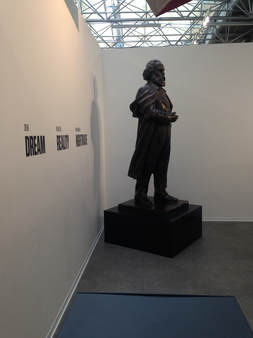
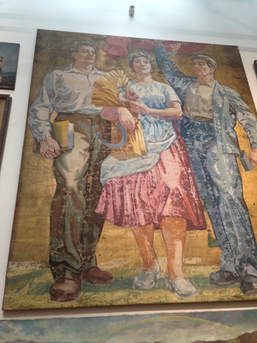
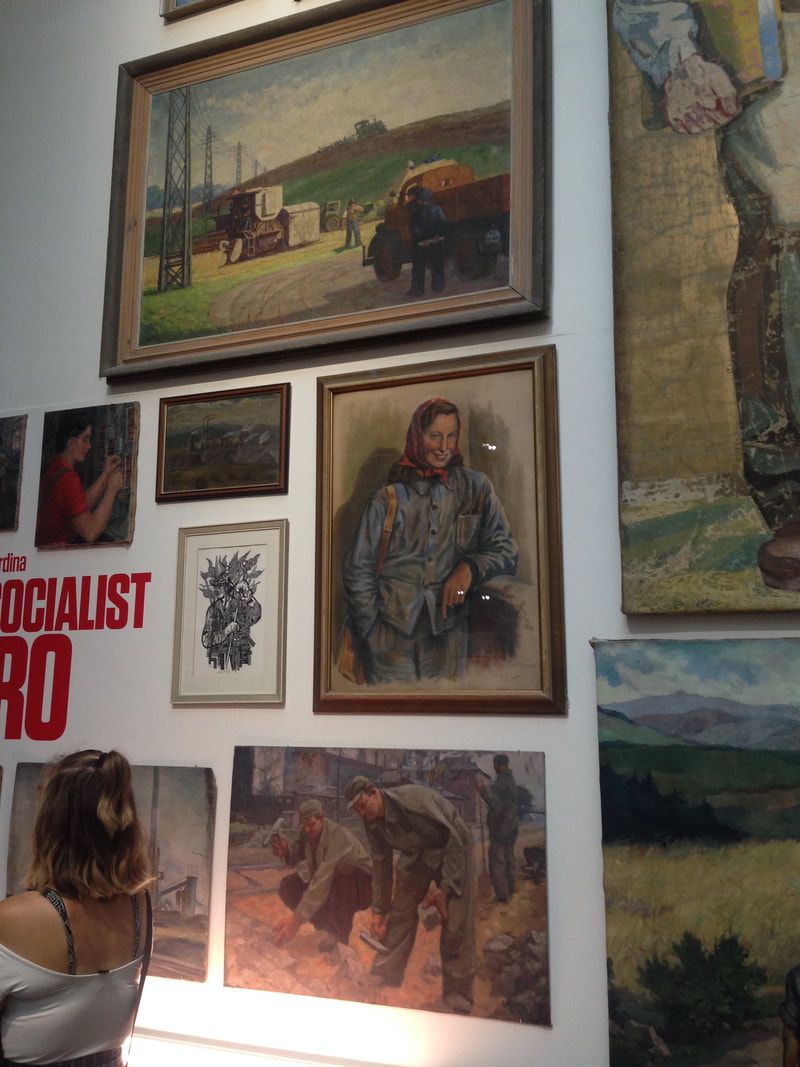



 RSS Feed
RSS Feed



